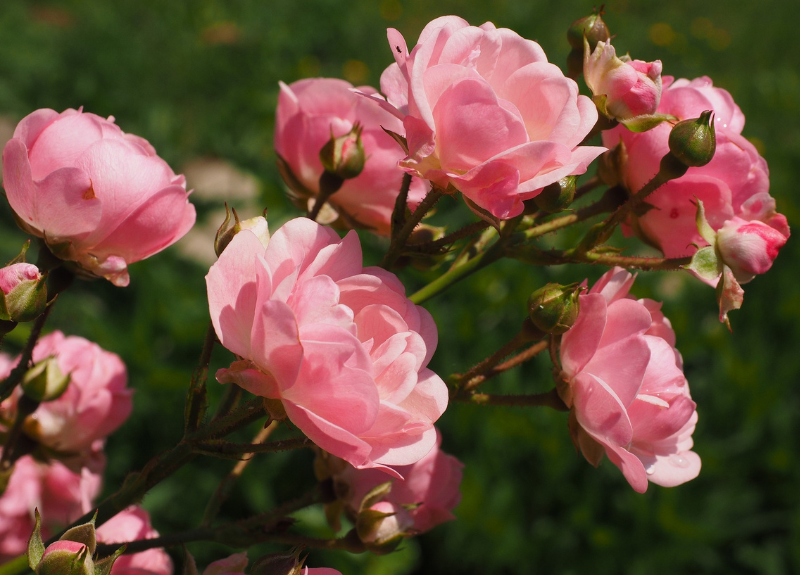
Each year in springtime, the mountainous slopes of Jabal Akhdar ushers in the spectacular rose blooming season which transforms the surrounding slopes of the renowned ‘Green Mountain’ into a colourful paradise filled with an abundance of the indigenous pink Damask roses found here. The rose blooming season at Jabal Akhdar starts around March and extends well into May every year as these stunning flowers fill the air with fragrance when in full bloom all over the mountainside.
While roses are in bloom throughout the area, the rose garden at Jebel Akhdar where they are cultivated from rose water and other products are a must visit. One heads from the Wadi Al Madeen checkpoint covering the 36 km stretch of winding road that takes us to Jebel Akhdar (2000m above sea level) the green giant that towers over it’s other brethren in the Al Hajar mountain range. This stunning destination is one of the unique highlight of the Arabian Peninsula, due to its cool climes as this mountain sits at a very high altitude. Al Jebel Al Akhdar is famed for its fruit orchards and rose gardens typically laid out in a terrace style along the slope of the mountain, watered with natural springs and Aflaj irrigation system.

The region is well known for a variety of fruits and blooms which are considered to be among the best in the country. One will cross the villages of Saiq, Wadi Bani Habib (the village of the old houses) & Al Ain on our journey to the rose gardens. These tiny villages look over a stunning view of dramatic peaks, and deep Gorges and Wadis. The roses of Jabal Al Akhdar are a spectacular sight during the blooming season when Damask roses bloom on the surrounding mountain slopes.
Visitors can witness these enchanting blooms spread their heady aroma and opt for one of the popular tours of the famed damask rose farms of Jabal Akhdar. These are some of the oldest rose distilleries in the entire region and some still practice the traditional techniques of extracting varieties of pure rose water from the harvest blossoms, a practice that dates back to ancient times.

One can meet the families who continue to make rose water in traditional distilleries. See first-hand the way that smoked rose water is extracted and distilled in the homes of the villagers. Visitor to the rose gardens here gain the opportunity to watch the local producers in action as they expertly move through the different stages of rose water production from the rose-pickers harvesting the blooms in a correct manner to the process of shifting huge loads of roses into ‘Al-duhjan’, the traditional mud ovens, for the distillation process.

There are a large number of hiking trails and climbing routes which visitors can utilize to explore the mountainside and soak in the gorgeous beauty of the rose bushes heavily laden with the weight of roses in full bloom as the sweet scent of roses wafts through the air. Exploring the oft barren slopes of Jebel Akhdarvisitors will find numerous hidden wadis and terrace farms where apricots, pomegranates, olives, walnuts and roses flourish in the cooler, high-altitude temperatures. Absorb in the mountains’ breathtaking panoramic views, delightful small traditional villages and historic rose-water distilleries.

Rose Oil is another famous produce of the region and the rose oil distilled within Oman is largely extracted from flowers that grow on the Jebel Akhdhar mountain. Requiring upto thousands of petals to create a single drop, this fragrant oil remains one of the most widely used oil in perfumeries. It is also used in a variety of other ways including as a fragrance, in cosmetics, and aromatherapy.
(It is advisable to wear light comfortable clothing and walking shoes).
One can also head to the ruins of the village of Birkat Al Mauz and enjoy a walk through the lush green date plantations there before proceeding to the checkpoint in Wadi Al Madeen
Talk to our travel advisors at +968 24400844 or inbound@zaharatours.com to find out the best time to visit the rose plantations at Jebel Akhdar.
All Rights Reserved © Zahara Tours